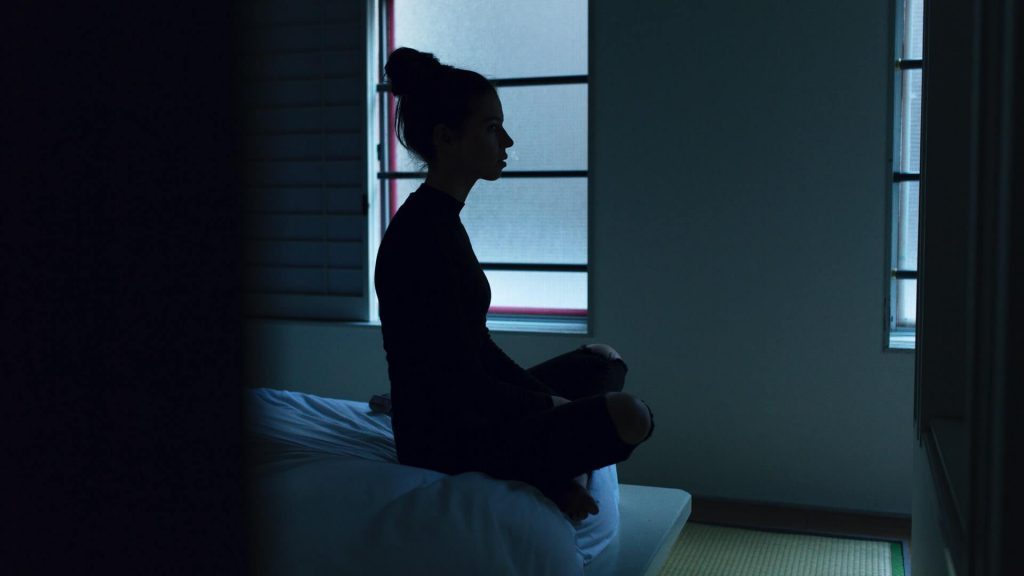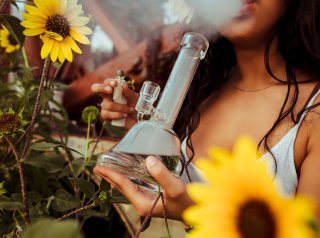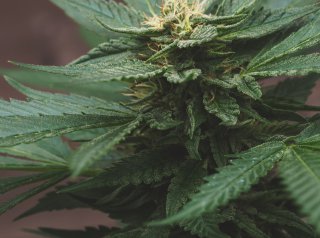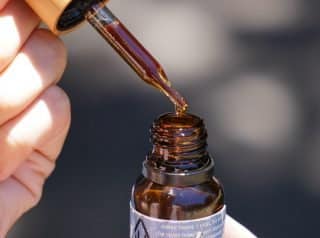Did you know that one out of every four Americans suffers from insomnia each year? According to Medical News Today, 30% of individuals in the United States experience acute insomnia, and 10% have persistent sleep problems. Would medical marijuana help people with insomnia or trouble sleeping?
Medical marijuana has emerged as a viable solution for the disease, despite all of the medicines and sleep treatment sessions. It has been shown to help with anxiety, tension, and sleep. If you are experiencing insomnia, what are you waiting for? Gain access to a MMJ Card at Teleleaf.com.
Page Content
Can Medical Marijuana Help Insomnia Patients?
Yes. According to 2008 research found in the National Library of Medicine, a high level of THC in a Cannabis strain decreases the user’s REM sleep. Rapid Eye Movement (REM) is a type of dreaming that happens when you are awake.
THC helps PTSD sufferers by limiting their nightmares while they sleep. As their sleep quality improves, their ‘nightmares’ decrease. As a consequence, you’ll get more restful sleep with fewer interruptions.
Overview of Insomnia
Insomnia is a sleep condition characterized by difficulty falling and/or staying asleep.
The disorder can be acute (short-term) or chronic (long-term) (chronic). It may also appear and disappear.
Acute insomnia can persist anywhere from a single night to several weeks. Insomnia is considered chronic when it occurs at least three times a week for three months or longer.
Insomnia comes in a variety of forms:
The term “primary insomnia” refers to sleep difficulties that are unrelated to any other health condition or issue.
Secondary insomnia refers to sleeping problems caused by a medical condition (such as asthma, depression, arthritis, cancer, or heartburn); pain; medicine; or substance abuse (like alcohol).
You may also come across:
- Sleep-onset insomnia is a condition in which you have difficulty falling asleep.
- Sleep-maintenance insomnia occurs when you have difficulty sleeping through the night or if you wake up too early.
- Mixed insomnia is a kind of insomnia in which you have difficulty getting asleep as well as remaining asleep during the night.
- Paradoxical insomnia occurs when you underestimate the amount of time you spend sleeping. It appears that you sleep far less than you actually do.

Causes of Insomnia
The following are the most common causes of insomnia:
- Stress caused by major life events such as a job loss or change, a loved one’s death, divorce, or relocating
- Noise, light, and temperature are examples of things that surround you.
- Changes in your sleep routine, such as jet lag, a new shift at work, or poor habits developed when you were experiencing other sleep issues
- Your chromosomes. Insomnia is thought to run in families, according to research.
Insomnia can also be caused by the following factors:
- Depression and anxiety are examples of mental health disorders.
- Cold, allergy, depression, high blood pressure, and asthma medications.
- At night, there is pain or discomfort.
- Use of caffeinated beverages, cigarettes, or alcohol, as well as illegal substances.
- Other endocrine issues, such as hyperthyroidism
- Sleep apnea and restless legs syndrome are examples of other sleep problems.
- Pregnancy
- Alzheimer’s disease and other forms of dementia are among the most common dementias.
- ADHD
- Menopause
- PMS
Risk Factors for Insomnia
Women are more affected by insomnia than males, and older people are more affected than younger people. African Americans in their twenties and thirties are likewise at a higher risk.
Other variables to consider are:
- A sickness that lasts a long time
- Problems with mental health
- Working nocturnal shifts or rotating shifts
Symptoms of Insomnia
Insomnia symptoms include:
- Drowsiness throughout the day
- Fatigue
- Grumpiness
- Having trouble concentrating or remembering things
Treatment for Insomnia
Acute insomnia may not necessitate medical intervention.
If you’re having trouble doing ordinary tasks due to exhaustion, your doctor may prescribe sleeping medications for a limited period. Medicines that act fast but only for a short time might help you avoid issues the next day, such as sleepiness.

If you have insomnia, don’t take over-the-counter sleeping medications. They may have adverse effects, and they have a tendency to perform less effectively with time.
You’ll require therapy for the illnesses or health issues that are keeping you awake if you have persistent insomnia. Behavioral treatment may also be recommended by your doctor. This might help you discover how to modify the things that cause insomnia and what you can do to encourage sleep.
Medical Marijuana as an Alternative Treatment for Insomnia
Cannabinoid THC is a molecule found in cannabis. It works as a relaxant and is accountable for you falling asleep. Terpenes, the active component in it, are also recognized for their sleep-inducing properties. They have a therapeutic impact on the body, as well as the ability to decrease pain and inflammation.
Terpenes operate by triggering the GABA system in the body. GABA (gamma-aminobutyric acid) is an amino acid that acts as a neurotransmitter inhibitor. It induces sleep by inhibiting neuronal activity in the brain and body. It relaxes your mind and substantially lowers tension and anxiety.
Visit Teleleaf.com today! Talk to a qualified medical marijuana doctor and gain access to a MMJ card if you have insomnia.





